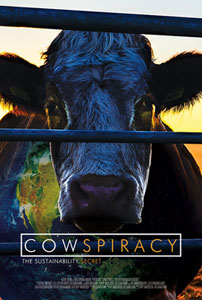1) GET OUTSIDE, WALK AMONG TREES to NURTURE YOUR SOUL — In a forest, in an urban pocket park, anywhere among trees! Make it a habit, do it daily if you can. This action supports and strengthens and complements all others because you’ll be FEELING nature, and then thinking, talking and writing about nature, strengthening an ancient relationship that’s in our DNA, hard-wired into our species over thousands of years of evolution.
You will feel better, stronger, calmer, healthier — and you’ll be inspired to take action from a place of love and connection, not (just) guilt or duty. When you feel a greater connection to, and affection for, you will be more able, more willing, and even eager to care for and protect.
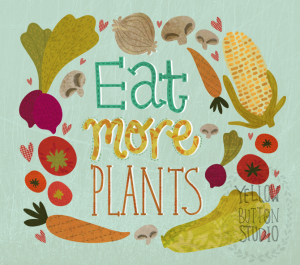 2) EAT MORE PLANT-BASED FOODS Surprisingly, one of the most effective things you can do to protect the Earth’s trees and forests from being cut down is simple and completely under your control: eat fewer animals and more plant-based foods. Ironically, eating more plants means preserving more of the Earth’s largest plants — trees. Why?
2) EAT MORE PLANT-BASED FOODS Surprisingly, one of the most effective things you can do to protect the Earth’s trees and forests from being cut down is simple and completely under your control: eat fewer animals and more plant-based foods. Ironically, eating more plants means preserving more of the Earth’s largest plants — trees. Why?
MEAT INDUSTRY = DEFORESTATION The #1 reason we cut down Earth’s forests is to raise animals for human consumption.
Over 90% of rainforest destruction is to raise animals, esp. cattle, for human consumption. In developed nations, this is a cruel luxury the planet can no longer sustain.
This includes growing plants, especially GMO (genetically-modified) corn and soy to feed large animals, especially cattle, rather than just eating plants directly. Raising cows and pigs and chickens and now fish (in farms) is a staggeringly inefficient use of land, water and plant food. A brilliant, thoroughly researched 90-minute documentary film details all this. It’s must-see for anyone who dares call himself an environmentalist: “Cowspiracy; The Sustainability Secret.”
LEARN MORE: DEFORESTATION – and eating animals
GOOD NEWS: gradually eating more plant-based foods is super-healthy for you, and can begin today; no need to wait for a multinational company or government to change its policies to improve the world. YOU have that power. You don’t even have to become vegetarian or (someone who doesn’t eat animals) or vegan (someone who also doesn’t eat animals products, like eggs and dairy). In fact, plant-based diets are growing quickly in popularity. There are about 7 million vegetarians and over a million vegans in the U.S. alone, and another 23 million who say they are vegetarian-leaning. READ MORE.
You can shift over a month, or a year from eating lots of meat, the way most Americans were trained, to eating less or not meat, depending on your motivation and personality type. It’s not hard if you do it gradually (unless you’re an all-or-nothing personality who can make and sustain a radical shift).
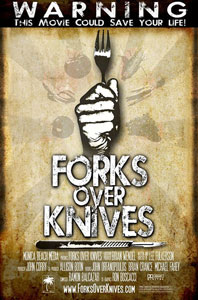 Try eating meat twice weekly rather than twice daily. Most of us were raised/trained/conditioned to eat meat daily, not aware of the environmental, health or ethical ramifications. For most people, and especially many Americans (about half of whom are overweight), eating less meat and more plants will be a healthier diet for you — and far less cruel to cows, pigs and chickens who suffer in today’s brutal, profit-driven factory farms. And yes, you can get plenty of protein from eating just plants. Think not? Then see another paradigm-shifting documentary film…
Try eating meat twice weekly rather than twice daily. Most of us were raised/trained/conditioned to eat meat daily, not aware of the environmental, health or ethical ramifications. For most people, and especially many Americans (about half of whom are overweight), eating less meat and more plants will be a healthier diet for you — and far less cruel to cows, pigs and chickens who suffer in today’s brutal, profit-driven factory farms. And yes, you can get plenty of protein from eating just plants. Think not? Then see another paradigm-shifting documentary film…
“Forks Over Knives” is another well-researched documentary film that specifically addresses the health impacts of eating plants vs. eating animals — and the benefits the majority of heavy meat eaters will reap from shifting to a diet with more plants. CLICK HERE FOR TRAILER
90-sec. VIDEO: What industry produces the most greenhouse gases?…
 Meat-free diet reduces greenhouse gases 50% Co-authored with Peter Scarborough, Principal Investigator on the Oxford Martin Programme on the Future of Food and Senior Researcher at the British Heart Foundation Centre on Population Approaches for Non-Communicable Disease, the study found greenhouse gas emissions for a meat-based diet are about double those for vegans:
Meat-free diet reduces greenhouse gases 50% Co-authored with Peter Scarborough, Principal Investigator on the Oxford Martin Programme on the Future of Food and Senior Researcher at the British Heart Foundation Centre on Population Approaches for Non-Communicable Disease, the study found greenhouse gas emissions for a meat-based diet are about double those for vegans:
http://www.oxfordmartin.ox.ac.uk/news/201406_MeatFre
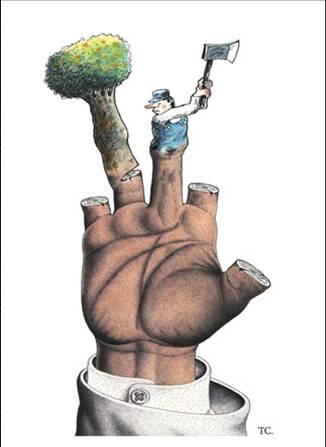 3) LEARN ABOUT YOUR PAPER & WOOD PRODUCTS, then choose them wisely and sparingly. Consider wood a valuable, precious commodity, not a throw-away item, or inanimate, worthless object. Even this simple awareness goes a long way. Avoid virgin wood products — they’re trees! — when numerous alternatives now exist. (E.g., buy only 100% post-consumer toilet paper, paper towels, and copy/office paper.) Read labels and literature to choose trees that are certified NOT from precious tropical rainforests, or old-growth or virgin forests anywhere.
3) LEARN ABOUT YOUR PAPER & WOOD PRODUCTS, then choose them wisely and sparingly. Consider wood a valuable, precious commodity, not a throw-away item, or inanimate, worthless object. Even this simple awareness goes a long way. Avoid virgin wood products — they’re trees! — when numerous alternatives now exist. (E.g., buy only 100% post-consumer toilet paper, paper towels, and copy/office paper.) Read labels and literature to choose trees that are certified NOT from precious tropical rainforests, or old-growth or virgin forests anywhere.
100% post-consumer recycled paper products are readily available for home & office: napkins, toilet paper, copy paper, stationery, business postcards, etc. need not destroy forests. As more people buy recycled papers, their currently higher cost will drop. In fact, virgin papers cost MORE than recycled products if you factor in the hidden, institutionalized environmental damages, health costs, etc. Same with the environmental and health damage done by burning fossil fuels.
Collectively, these small actions make a big difference. Spread the word, encourage your friends, family, neighbors to do the right thing for our shared planet and its precious forest resources.
4) JOIN/SUPPORT EXISTING ENVIRONMENTAL ORGANIZATIONS – A list of orgs TreeSpirit endorses is HERE. Get involved with whichever one(s) touches your heart and suits your thinking. Meet like-minded people and build community. When we the people lead, our leaders will follow. Because in fact most leaders really are followers of the people.
• SUPPORT THIS ENVIRONMENTAL ORGANIZATION, The TreeSpirit Project, in its ongoing decade-old mission to raise awareness of the importance of trees in our lives: CLICK HERE
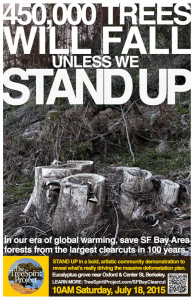 • IF YOU LIVE IN THE SF Bay Area, OR LOVE ITS TREES, GET INVOLVED with the current (autumn 2015) campaign to protect 450,000 healthy trees from being clearcut in the largest forest clearcuts in 100 years.
• IF YOU LIVE IN THE SF Bay Area, OR LOVE ITS TREES, GET INVOLVED with the current (autumn 2015) campaign to protect 450,000 healthy trees from being clearcut in the largest forest clearcuts in 100 years.
LEARN MORE HERE
Or donate directly to its ongoing educational campaign: HERE

